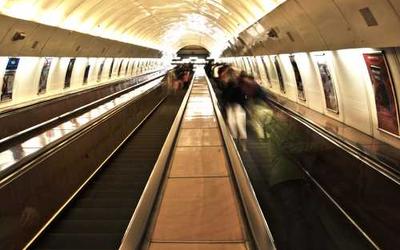🇵🇾 Paraguay
Paraguay Travel Guide - Guaraní Soul & Tereré Culture
1 destinations · Budget level 1
Overview
Paraguay stands unique in South America as the only truly bilingual nation where Guaraní indigenous language and culture aren't marginalized but celebrated as core national identity. 77% of Paraguayans speak Guaraní, creating 'Jopara' - unconscious Spanish-Guaraní mixing mid-sentence that confuses outsiders but defines authentic communication. Tereré (cold yerba mate) transcends beverage becoming UNESCO Intangible Cultural Heritage social ritual - refusing offered tereré from communal cup is social offense, everyone drinks from same bombilla straw. Family hierarchy absolute with multi-generational homes common and extended families living close together, grandparents holding final authority on decisions. 'Paraguayan time' philosophy prioritizes personal connections over punctuality - social events start hours late, rushing considered rude. Catholic-Guaraní syncretism blends indigenous spiritual practices with church traditions seamlessly. Hospitality without limits means strangers invited for tereré, meals, and family gatherings regularly - locals genuinely want to share culture and home with visitors.
Travel tips
Siesta Reality Shock: Everything closes 12-3 PM for lunch and rest including banks and government offices - locals go home for big family meals, plan activities around sacred midday closure. Tereré Social Code: Accept offered cold mate even if don't like it - communal cup sharing is UNESCO heritage, refusing is social offense, everyone uses same metal bombilla straw without hesitation. Jopara Language Mix: Locals blend Spanish and Guaraní unconsciously mid-sentence - learning basic Guaraní phrases (mba'éichapa, aguyje, iporã) earns genuine appreciation and opens social doors immediately. August First Ritual: On August 1st every Paraguayan drinks carrulim (caña liquor with ruda and lemon) to ward off bad luck - shops sell pre-mixed bottles, locals believe month brings misfortune without ritual protection. Invitation Acceptance: When locals invite you for meals or tereré (happens frequently), accept genuinely - refusing is offensive, Paraguayan hospitality unlimited and authentic, not tourist performance. Cash Preference: Credit cards limited outside Asunción and malls - bring US dollars and exchange to Guaraníes (PYG), ATMs available but cash still dominates daily transactions.
Cultural insights
Guaraní pride defines Paraguay unlike any South American nation - indigenous language and culture not marginalized but central to national identity, locals consider bilingualism source of pride and cultural uniqueness. Family hierarchy absolute with extended families living close, multi-generational homes common, and grandparents having final say in family decisions - young adults often live with parents until marriage, family loyalty supreme. Hospitality without limits isn't cliché but reality - inviting visitors (even strangers) for tereré, meals, or family gatherings is normal, locals genuinely want to share culture and home, refusing invitation considered offensive. Relaxed time philosophy where punctuality flexible except for work - social events start hours late, rushing considered rude, locals value personal connections over schedules, 'Paraguayan time' frustrates outsiders initially. Community over individual with collective decisions, shared resources, and group activities prioritized over personal independence - locals rarely do things alone, always involving family or friends in daily activities naturally. Catholic-Indigenous syncretism with religious practices blending Catholic traditions and Guaraní spiritual beliefs seamlessly - locals combine church attendance with indigenous rituals around harvest and fertility celebrations without seeing contradiction. Tereré circles create instant community - the person with thermos (cebador) refills and passes cup around group continuously for hours, social bonding ritual repeated daily in parks, plazas, and neighborhood corners throughout afternoon.
Best time to visit
Spring (September-November): 22-32°C: Temperature rising quickly from winter, increased rainfall October-November as spring transitions to summer, locals enjoy last comfortable outdoor weather before oppressive summer heat arrives. Pleasant temperatures for sightseeing, flowers blooming, locals prepare for upcoming summer season. Summer (December-March): 27-38°C: Brutally hot and humid with locals wearing minimal clothing and staying indoors during midday siesta, strong sun requires constant sunscreen and hat protection, rain common with quick afternoon thunderstorms, evening temperatures barely drop so locals socialize outside after 7 PM when tolerable. Most uncomfortable season for visitors but when locals vacation domestically and celebrate Christmas, New Year, and Carnival. Autumn (April-May): 20-28°C: Pleasant transitional weather with locals still wearing summer clothes but adding light layers for cooler mornings and evenings, less rainfall making it most comfortable time for visiting, locals begin outdoor activities again after oppressive summer, moderate temperatures ideal for exploring. Winter (June-August): 10-21°C: Mild winters by local standards but locals bundle up dramatically for temperatures above 10°C, bring warm jacket for evenings as locals wear sweaters and long pants, coldest month July averages 17°C with rare drops below 5°C, locals complain about cold constantly despite mild temperatures compared to other climates, least rain falls in August making it driest month with clear sunny days perfect for tourism.
Getting around
Public Buses (Colectivos): Standard buses 2,800 PYG (€0.35), air-conditioned 4,200 PYG (€0.50) per journey, prepaid Jaha card required bought at kiosks, locals load cards weekly, buses every 10-20 minutes on main routes, locals know which numbers go where instinctively, real-time tracking via MetroGuagua app, avoid rush hours 7-9 AM and 5-7 PM when packed uncomfortably. Taxis & Ride-Sharing: Taxis start 5,000 PYG plus 10,000 PYG per km, many drivers don't use meters so locals negotiate price before entering, Uber and Bolt much cheaper than traditional taxis making them preferred by locals, night surcharge 4,000 PYG after 10 PM or Sundays, airport to city center 100,000-150,000 PYG (€13-20) with locals sharing rides to split costs. Walking: City center walkable but hot and humid most of year - locals walk early morning or evening to avoid midday heat, comfortable shoes essential as sidewalks uneven in many areas, locals carry umbrellas for sudden rain and sun protection simultaneously. Car Rental: €15-25 per day for small car, essential for exploring interior towns and villages beyond Asunción, locals drive to countryside on weekends, parking generally easy and free except downtown where locals know free street spots, driving style chaotic by European standards with locals honking constantly but maintaining friendly atmosphere. Intercity Buses: Extensive network connecting all major towns and cities, comfortable long-distance buses with air conditioning, locals prefer buses over limited domestic flights, book through bus terminals or online, affordable way to explore country.
Budget guidance
Budget Travel (PYG 200,000-350,000/day or $25-45/day): Budget hostels 100,000-180,000 PYG per night, street food and local comedores (simple restaurants) 25,000-50,000 PYG per meal, chipa bread 2,000-3,000 PYG, public buses 2,800-4,200 PYG per ride, free walking in parks and costanera riverfront, local markets for authentic experience at minimal cost. Locals recommend Mercado 4 for cheap authentic food 8,000-15,000 PYG, lomiterías for filling sandwiches 15,000-25,000 PYG, municipal museums with free entry days. Mid-Range (PYG 350,000-700,000/day or $45-90/day): Mid-range hotels 350,000-550,000 PYG per night, restaurant meals at places locals frequent like Lido Bar 25,000-60,000 PYG per person, air-conditioned buses 4,200 PYG, taxis and Uber for convenience, cultural experiences and craft workshops 50,000-100,000 PYG, football matches 20,000-80,000 PYG, monthly bus pass 218,000 PYG for unlimited rides. Locals eat at traditional restaurants combining quality and value, visit artisan workshops directly for authentic crafts at fair prices. Luxury (PYG 700,000+/day or $90+/day): Upscale hotels in Villa Morra district 800,000-1,400,000 PYG per night, fine dining at international restaurants 60,000-100,000+ PYG per person, private guides and car services, premium cultural experiences including private craft workshops and traditional music performances, wine tastings and gourmet food tours. Paraguay offers exceptional value compared to neighboring Argentina and Brazil - locals know hidden gems offering quality experiences at fraction of regional prices.
Language
Paraguay uniquely bilingual with Spanish and Guaraní both official languages. 77% of population speaks Guaraní creating 'Jopara' phenomenon - locals unconsciously mix Spanish and Guaraní mid-sentence in daily conversation, switching languages fluidly based on context and emotion. Essential Guaraní phrases: 'Mba'éichapa' (mbah-ay-ee-CHA-pah) means 'how are you?' as most important greeting, 'Iporã' (ee-po-RAH) means 'good/fine' as standard response, 'Aguyje' (ah-goo-YEH) means 'thank you', 'Jaha' (hah-HAH) means 'let's go' used constantly by locals. Spanish phrases: 'Che' (cheh) means 'hey/mate' borrowed from Guaraní and used like 'dude', 'Tranquilopa' (tran-KEE-loh-pah) mixes Spanish 'tranquilo' with Guaraní 'pa' meaning 'take it easy'. Food vocabulary essential: 'Chipa' (CHEE-pah) cheese bread, 'Tereré' (teh-reh-REH) cold yerba mate, 'Hetereí' (heh-teh-reh-EE) means 'delicious' in Guaraní. English very limited outside tourist hotels and some restaurants - locals rarely speak English making basic Spanish and Guaraní attempts essential for genuine cultural immersion. Learning Guaraní phrases earns immediate respect and appreciation from locals who proudly share indigenous language. Phonetic pronunciation crucial as Guaraní sounds nothing like Spanish - locals happy to teach proper pronunciation when visitors show interest in indigenous language.
Safety
Paraguay generally safe for travelers with violent crime against tourists rare. Asunción requires normal urban caution - watch belongings in crowded areas like Mercado 4 and bus terminals, don't display expensive phones or jewelry on streets, avoid empty areas after dark. Locals use Uber and Bolt instead of unmarked taxis for safety and transparent pricing. Pickpocketing occasional in tourist areas and markets - keep valuables secure, use bags worn front, locals stay alert in crowded spaces. Political demonstrations rare and usually peaceful - locals avoid protest areas as precaution. Health concerns include dengue fever during rainy season - mosquito repellent essential, locals experience outbreaks regularly especially summer, use DEET and long sleeves at dawn and dusk. Tap water safe in Asunción but locals drink filtered or bottled water as preference - ice generally safe in restaurants. Medical care good in Asunción with modern hospitals and clinics, limited in rural areas, locals recommend Sanatorio Italiano and Hospital de Clínicas, travel insurance recommended for serious issues. Heat exhaustion risk during summer months - locals stay hydrated with constant tereré consumption, avoid midday sun, recognize heat illness symptoms. Emergency numbers: 911 (general emergency), 131 (police), 141 (ambulance), 132 (fire). Roadside assistance: +595 21 660-220. Paraguay considered one of safest South American countries - locals and long-term expats emphasize low crime compared to neighbors, friendly atmosphere makes solo travel comfortable including for women travelers using normal precautions locals employ daily.
Money & payments
Paraguayan Guaraní (PYG or ₲) is official currency with current exchange rate approximately 7,000-7,500 PYG per 1 USD, 8,000-8,500 PYG per 1 EUR. US dollars widely accepted and recommended to bring for better exchange rates - locals prefer dollars for large purchases, exchange at cambios (exchange houses) offering competitive rates without fees banks charge. ATMs available throughout Asunción at banks, shopping malls like Shopping del Sol, and major streets - withdrawal limits typically 2,000,000-3,000,000 PYG per transaction with fees around 20,000-40,000 PYG, locals minimize withdrawals due to fees. Credit cards (Visa and Mastercard) accepted at malls, hotels, upscale restaurants, and larger stores but cash still dominates daily transactions - small businesses, markets, street vendors, neighborhood shops, and local restaurants cash only, locals carry cash for most purchases. Mobile payments growing with Paraguayans using Tigo Money and local banking apps - foreigners need local bank account to participate. Typical costs locals pay: Coffee 8,000-12,000 PYG (€1-1.50), beer at bar 10,000-18,000 PYG (€1.25-2.25), empanada or street food 2,000-5,000 PYG (€0.25-0.65), chipa cheese bread 2,000-3,000 PYG (€0.25-0.40), local restaurant lunch menu 25,000-35,000 PYG (€3-4.50), Lido Bar traditional meal 25,000-40,000 PYG (€3-5), mid-range restaurant dinner 60,000-100,000 PYG (€7.50-12.50) per person, lomito sandwich 15,000-25,000 PYG (€2-3), bus ride 2,800-4,200 PYG (€0.35-0.55), taxi short ride 20,000-40,000 PYG (€2.50-5), monthly apartment rent city center 2,500,000-4,000,000 PYG (€315-505). Tipping culture: 10% service charge often included in restaurant bills - locals check before adding extra, tipping not mandatory but appreciated for good service, round up taxi fares or add 10% for exceptional service, hotel porters 5,000-10,000 PYG per bag, tour guides 20,000-50,000 PYG depending on service quality and duration. Paraguay offers exceptional value for money - locals emphasize how far budget stretches compared to Argentina and Brazil, making it attractive for budget travelers and digital nomads seeking authentic South American experience without tourist inflation.

